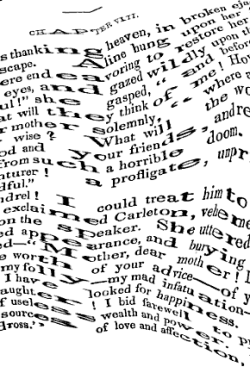Opções de inscrição

A disciplina tem por objetivo introduzir o aluno aos debates em torno das chamadas 'Humanidades Digitais'. De um lado, mostrará o contexto do surgimento desse termo e de seu uso, e os debates conceituais que ele tem provocado nas diferentes áreas das humanidades. De outro lado, e de uma perspectiva mais geral, pretende-se debater os desafios teóricos, metodológicos e institucionais trazidos pelo uso de tecnologias computacionais nas humanidades, com ênfase especial nos impactos das tecnologias digitais de processamento de textos no âmbito da filologia e da linguística.
- Docente: Maria Clara Paixao de Sousa
- Docente: Vanessa Martins do Monte
Visitantes não podem acessar este curso. Por favor faça login.